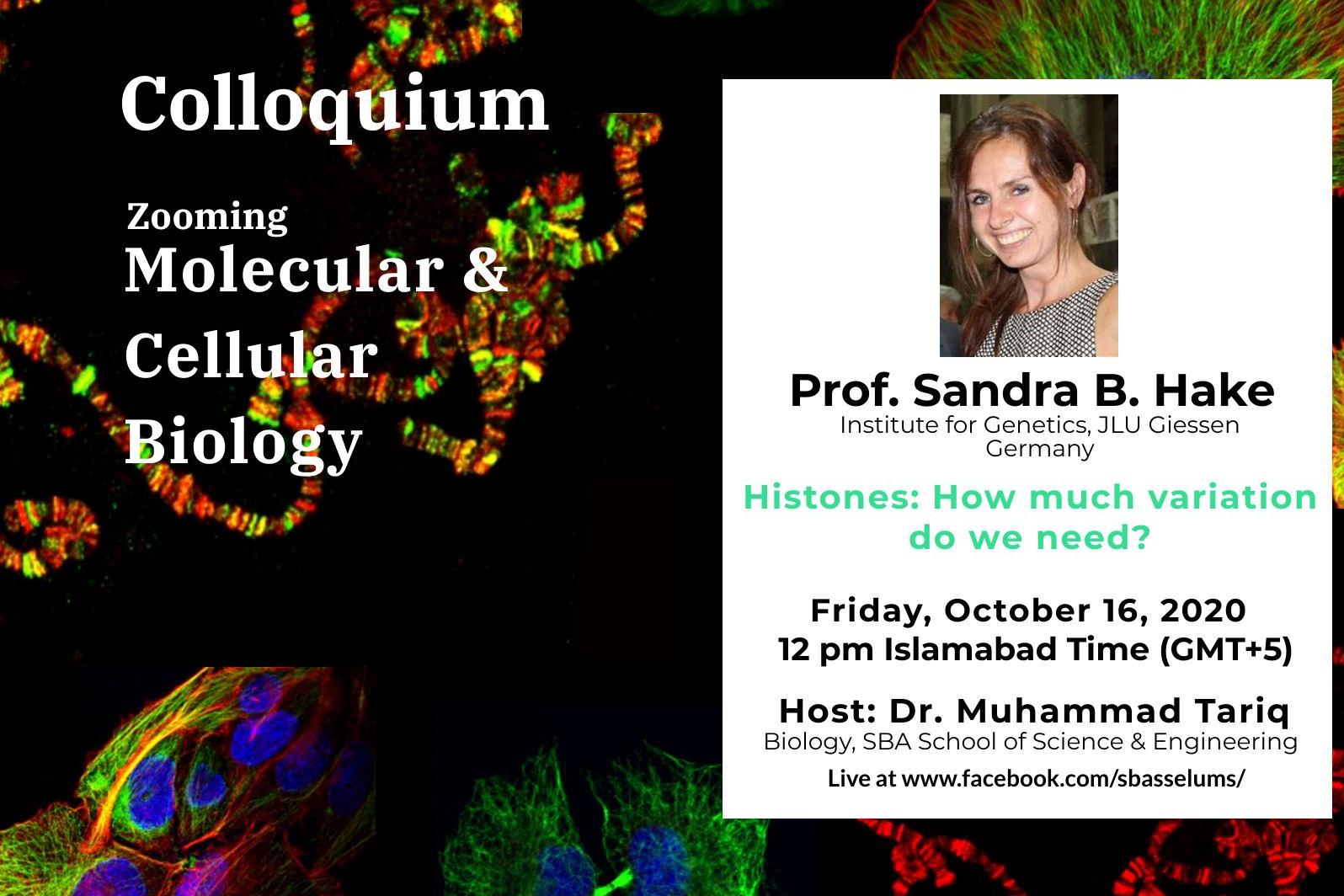
Histones: How much variation do we need?
Prof. Dr. Sandra Hake from Institute of Genetics, JLU Gisin Germany was our guest in “Colloquium zooming Molecular and Cellular Biology” to talk about "Histones: How much variation do we need?", this year.
Date: Friday 16th October 2020,
Time: 12:00 noon Pakistan time / 09:00 AM German Time
Prof. Hake works on specialized proteins called histones which are used for packaging of DNA in our cells. Normally, we have nearly 2 meters long DNA packaged in a 10-micron size nucleus which is obviously a huge challenge to organize our genome. It is wrapping of DNA around histones which makes such an impossible task possible. However, packaging of DNA with histones has other challenges like how DNA will be accessible if it gets damaged, how cellular machinery will access DNA when it must decode messages hidden in DNA during the process of transcription. Moreover, these histones come in different variants as different cellular processes seem to be influenced by covalent modifications of histones, during transcription, DNA repair and DNA replication. Prof. Hake talked about variation within histones and how it influences our genome.

